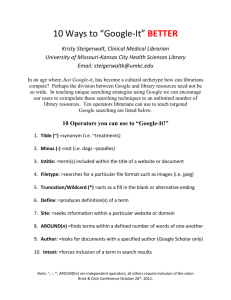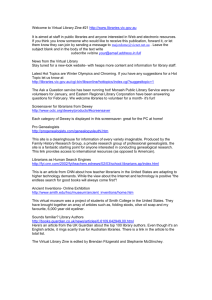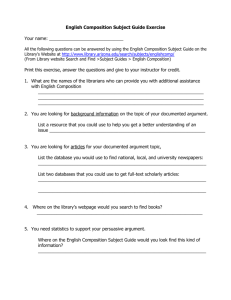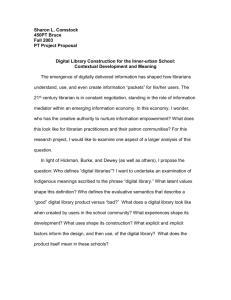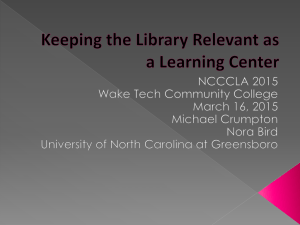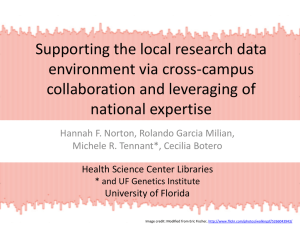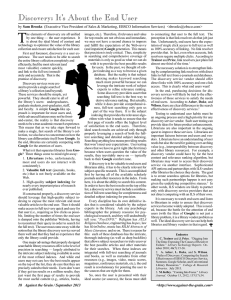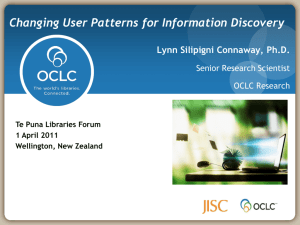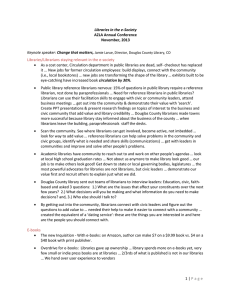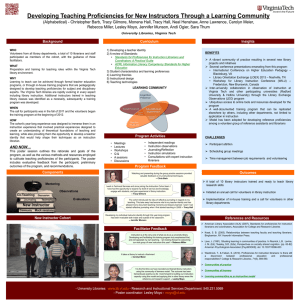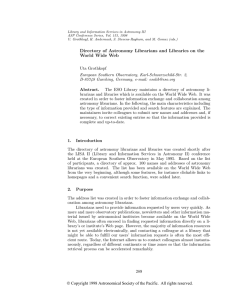STATE OF REFERENCE EDUCATION: What we have learned and
advertisement
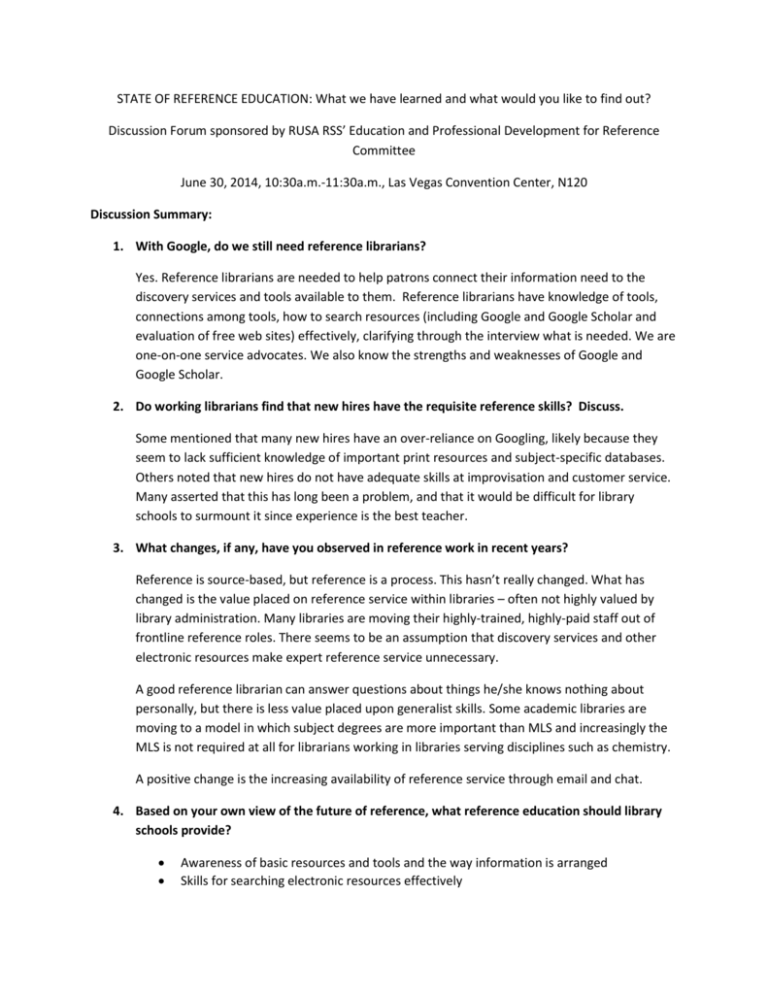
STATE OF REFERENCE EDUCATION: What we have learned and what would you like to find out? Discussion Forum sponsored by RUSA RSS’ Education and Professional Development for Reference Committee June 30, 2014, 10:30a.m.-11:30a.m., Las Vegas Convention Center, N120 Discussion Summary: 1. With Google, do we still need reference librarians? Yes. Reference librarians are needed to help patrons connect their information need to the discovery services and tools available to them. Reference librarians have knowledge of tools, connections among tools, how to search resources (including Google and Google Scholar and evaluation of free web sites) effectively, clarifying through the interview what is needed. We are one-on-one service advocates. We also know the strengths and weaknesses of Google and Google Scholar. 2. Do working librarians find that new hires have the requisite reference skills? Discuss. Some mentioned that many new hires have an over-reliance on Googling, likely because they seem to lack sufficient knowledge of important print resources and subject-specific databases. Others noted that new hires do not have adequate skills at improvisation and customer service. Many asserted that this has long been a problem, and that it would be difficult for library schools to surmount it since experience is the best teacher. 3. What changes, if any, have you observed in reference work in recent years? Reference is source-based, but reference is a process. This hasn’t really changed. What has changed is the value placed on reference service within libraries – often not highly valued by library administration. Many libraries are moving their highly-trained, highly-paid staff out of frontline reference roles. There seems to be an assumption that discovery services and other electronic resources make expert reference service unnecessary. A good reference librarian can answer questions about things he/she knows nothing about personally, but there is less value placed upon generalist skills. Some academic libraries are moving to a model in which subject degrees are more important than MLS and increasingly the MLS is not required at all for librarians working in libraries serving disciplines such as chemistry. A positive change is the increasing availability of reference service through email and chat. 4. Based on your own view of the future of reference, what reference education should library schools provide? Awareness of basic resources and tools and the way information is arranged Skills for searching electronic resources effectively Ability to evaluate authority/quality of information How information travels within disciplines (which does vary) – the specialty ‘source’ courses are Still valuable – law, government information, business, medical, humanities Provision of excellent public service Teaching skills Practical, hands-on experiences through reference practicums or internships.

